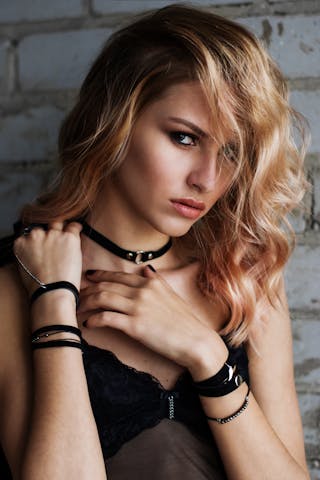Is Perfect MatchS Bisexual Representation Fetishizing?
Do you ever wonder about the fine line between genuine representation and fetishization? It's a hot topic in the dating world right now, and opinions are flying left and right. Some people argue that seeking out specific sexual orientations as a "preference" can actually be harmful and objectifying. Others believe that it's simply a matter of personal taste. Whatever your stance, it's definitely worth diving into. If you're curious, you might want to check out #anchortext#these steamy gay trap sex games# to get a better idea of the conversation.
Bisexual representation in the media has been a topic of discussion for many years. While there has been an increase in visibility for the bisexual community, some have argued that this representation can sometimes be fetishizing. One such example is the popular dating show, Perfect MatchS, which has featured bisexual contestants in the past. In this article, we will explore the complexities of bisexual representation on the show and discuss the implications of fetishizing bisexual individuals.
If you're curious about exploring open relationships, check out these dating sites for open relationships and see if it's the right fit for you.
The Problem with Fetishizing
If you're over 40 and looking for dating sites, you should definitely check out this website for some great options.
Fetishizing refers to the act of reducing someone to a specific aspect of their identity, often for sexual gratification. In the case of bisexual representation, this can manifest as the portrayal of bisexual individuals as hypersexual or promiscuous. This harmful stereotype not only perpetuates misconceptions about bisexuality but also undermines the complexities of individuals' experiences.
Explore new and exciting cuckolding adventures near you!
Perfect MatchS and Bisexual Contestants
Perfect MatchS is a dating show that aims to help contestants find their perfect partner. In recent seasons, the show has featured bisexual contestants who are open to dating individuals of any gender. While this may seem like a positive step towards bisexual representation, some viewers have raised concerns about the way in which these contestants are portrayed.
One issue that has been brought up is the focus on the contestants' bisexuality as a central plot point. Instead of allowing these individuals to showcase their diverse personalities and interests, the show often hones in on their sexual orientation as a means of generating drama and intrigue. This can lead to the fetishization of bisexual individuals, as their identity is reduced to a mere source of entertainment for the audience.
The Impact on Bisexual Individuals
Fetishizing bisexual individuals not only perpetuates harmful stereotypes but also has a real impact on their lives. When bisexual representation is reduced to a mere sexual fantasy, it can lead to discrimination and erasure of their experiences. Bisexual individuals may feel pressured to conform to these stereotypes or may struggle to find genuine connections with others who see them as more than just a sexual object.
Furthermore, fetishization can also create a hostile dating environment for bisexual individuals. They may encounter individuals who are only interested in them for their sexual orientation, rather than seeing them as a whole person. This can lead to feelings of objectification and diminished self-worth, ultimately impacting their ability to form meaningful connections with others.
Moving Towards Authentic Representation
In order to combat fetishization, it is crucial for media platforms, including dating shows like Perfect MatchS, to portray bisexual individuals in a more authentic and respectful manner. This means moving away from sensationalizing their sexual orientation and instead allowing them to showcase their diverse personalities and experiences.
Additionally, it is important for audiences to recognize and challenge the harmful stereotypes perpetuated by fetishization. By acknowledging the complexities of bisexuality and actively working to dismantle these stereotypes, we can create a more inclusive and supportive environment for bisexual individuals.
In conclusion, while the increased visibility of bisexual individuals on shows like Perfect MatchS may seem like a positive step, it is important to critically examine the way in which they are portrayed. Fetishizing bisexual representation can have harmful implications for individuals within the community, perpetuating harmful stereotypes and erasing their experiences. Moving forward, it is crucial for media platforms and audiences alike to prioritize authentic and respectful representation of bisexual individuals.
- https://flirting-online.thehottieandthenottie.com/posts/5-places-you-can-catch-an-sti-without-having-sex/
- https://flirting.getweps.com/posts/how-often-married-couples-have-sex-15-couples-explain/
- https://dating-guide.getweps.com/posts/butter-churner-sex-position-love-islands-callums-favourite-sex-position/
- https://meet-singles.getweps.com/posts/15-sex-positive-celebs-we-love/
- https://chat.ua-sex.com/posts/chrishells-breakup-shows-the-need-for-shared-relationship-goals/
- https://hookupsites.themountaintopplay.com/posts/woman-on-top-how-to-ride-dick-sex-position-tips/
- https://dating-guide.timebombrecordings.com/posts/lesbian-dating-apps-2022-8-best-lesbian-and-queer-dating-apps/
- https://personals-website.getweps.com/posts/erotic-lingerie-lingerie-sex-wear/
- https://singles-website.getweps.com/posts/my-best-sex-ever-was-with-a-bollywood-star/
- https://dating.timebombrecordings.com/posts/best-genderaffirming-sex-toys/
- https://hookup-website.timebombrecordings.com/posts/fat-sex-why-i-only-want-to-have-sex-with-fat-bodies/
- https://flirting.campsupernow.com/posts/benching-is-the-new-dating-trend-well-all-soon-be-practicing/
- https://dating-chat-room.campsupernow.com/posts/my-best-sex-ever-was-when-i-filmed-myself-masturbating/
- https://hookup.getweps.com/posts/long-distance-relationship-sex-toys-apps-and-adult-sex-toys-that-can-improve-your-ldr/
